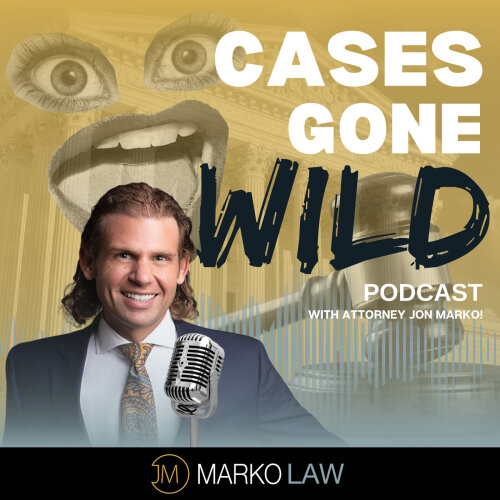Best Toxic Mold Lawyers in Detroit
Share your needs with us, get contacted by law firms.
Free. Takes 2 min.
List of the best lawyers in Detroit, United States
About Toxic Mold Law in Detroit, United States:
Toxic mold, also known as black mold, can pose serious health risks to individuals living in homes or buildings with mold infestations. In Detroit, United States, legal issues related to toxic mold can arise when a landlord fails to address a mold problem, resulting in health complications for tenants. If you believe you have been exposed to toxic mold in Detroit, it is essential to seek legal advice to understand your rights and options for recourse.
Why You May Need a Lawyer:
You may need a lawyer to assist you in cases involving toxic mold if:
- Your landlord has been negligent in addressing a mold issue in your rental property
- You have suffered health complications due to exposure to toxic mold
- You are facing resistance from your landlord or insurance company in addressing a mold problem
Local Laws Overview:
In Detroit, United States, landlords are required to maintain rental properties in a habitable condition, which includes addressing mold infestations promptly. Tenants have the right to a safe and healthy living environment, and landlords can be held liable for damages resulting from mold exposure. Legal remedies may include compensation for medical expenses, relocation costs, and even punitive damages in severe cases of negligence.
Frequently Asked Questions:
Q: Can I sue my landlord for toxic mold exposure?
A: Yes, landlords can be held liable for failing to address mold problems that result in health complications for tenants.
Q: How do I prove that mold exposure has affected my health?
A: Medical documentation of mold-related illnesses and expert testimony can help establish the link between mold exposure and health issues.
Q: What should I do if I discover mold in my rental property?
A: Notify your landlord in writing immediately and document the mold with photographs. Keep a record of all communication with your landlord regarding the mold issue.
Q: Can I break my lease if my landlord fails to address a mold problem?
A: Depending on the severity of the mold issue and the landlord's response, you may have grounds to terminate your lease due to uninhabitable conditions.
Q: How long do I have to file a lawsuit for mold exposure?
A: Statutes of limitations vary by state, so it is essential to consult with a lawyer promptly to determine the deadline for filing a lawsuit.
Q: What type of damages can I seek in a lawsuit for toxic mold exposure?
A: You may be entitled to compensation for medical expenses, property damage, relocation costs, and even punitive damages in extreme cases of negligence.
Q: Can my landlord evict me for reporting mold in the rental property?
A: Retaliation by landlords for reporting habitability issues, such as mold, is illegal. Tenants are protected from eviction in retaliation for asserting their legal rights.
Q: Are there governmental agencies that oversee mold-related issues in Detroit?
A: The Detroit Health Department and the Michigan Department of Health and Human Services are resources for information on mold-related health concerns in Detroit.
Q: Can I handle a toxic mold case on my own without a lawyer?
A: While you have the right to represent yourself in legal matters, toxic mold cases can be complex and require expertise in landlord-tenant law and mold regulations. Consulting with a lawyer experienced in toxic mold cases can help protect your rights and improve your chances of a favorable outcome.
Q: How can I find a lawyer specializing in toxic mold cases in Detroit?
A: You can search for lawyers specializing in toxic mold cases in Detroit through legal directories, bar associations, and referrals from friends or family members. Look for lawyers with experience in landlord-tenant disputes and toxic torts.
Additional Resources:
- Detroit Health Department: http://www.detroitmi.gov/health
- Michigan Department of Health and Human Services: https://www.michigan.gov/mdhhs
- State Bar of Michigan Lawyer Referral Service: https://lrs.michbar.org/
Next Steps:
If you believe you have been exposed to toxic mold in Detroit and are considering legal action, contact a lawyer specializing in toxic mold cases to discuss your options. Keep detailed records of the mold issue, your communication with your landlord, and any medical expenses related to mold exposure. Act promptly to protect your rights and seek compensation for damages resulting from toxic mold exposure.
Lawzana helps you find the best lawyers and law firms in Detroit through a curated and pre-screened list of qualified legal professionals. Our platform offers rankings and detailed profiles of attorneys and law firms, allowing you to compare based on practice areas, including Toxic Mold, experience, and client feedback.
Each profile includes a description of the firm's areas of practice, client reviews, team members and partners, year of establishment, spoken languages, office locations, contact information, social media presence, and any published articles or resources. Most firms on our platform speak English and are experienced in both local and international legal matters.
Get a quote from top-rated law firms in Detroit, United States — quickly, securely, and without unnecessary hassle.
Disclaimer:
The information provided on this page is for general informational purposes only and does not constitute legal advice. While we strive to ensure the accuracy and relevance of the content, legal information may change over time, and interpretations of the law can vary. You should always consult with a qualified legal professional for advice specific to your situation.
We disclaim all liability for actions taken or not taken based on the content of this page. If you believe any information is incorrect or outdated, please contact us, and we will review and update it where appropriate.










